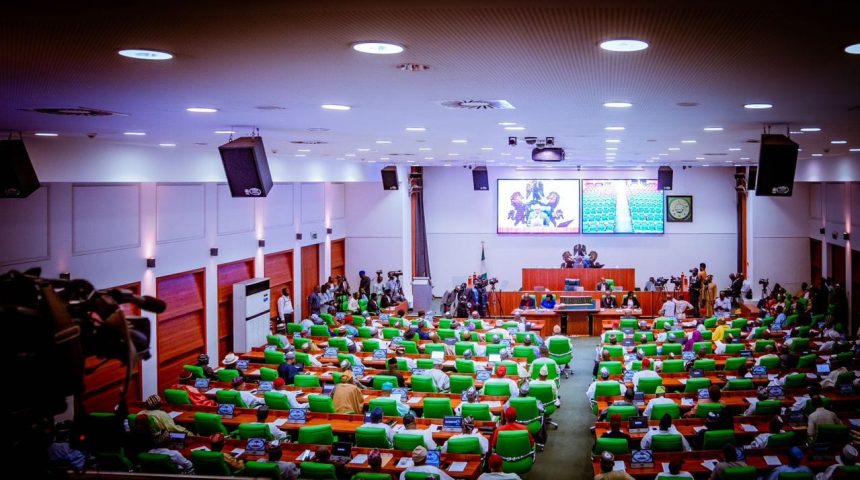The House of Representatives has introduced a bill seeking to mandate all public and civil servants, including elected officials and their families, to use only public educational and health institutions within Nigeria.
The proposed legislation, which passed first reading on the floor of the House on Monday, is aimed at restoring confidence in the country’s ailing public sectors by compelling leaders to experience the same services available to ordinary citizens.
Sponsored by Hon. Amobi Ogah, who represents Isuikwuato/Umunneochi Federal Constituency of Abia State, the bill seeks to reverse the trend of top government officials enrolling their children in elite private or foreign schools and seeking medical treatment abroad while public institutions remain underfunded and underperforming.
Ogah, addressing reporters after the session, criticized what he described as a culture of neglect and double standards, citing that despite the over ₦1.3 trillion allocated to health care in 2024, many public hospitals remain poorly equipped and understaffed.
According to him, Nigerians spent an estimated $29.29 billion on foreign medical treatments during the eight-year tenure of former President Muhammadu Buhari alone—funds he believes could have significantly improved local health infrastructure if reinvested.
Meanwhile, in a separate development, the House suspended deliberations on a bill proposing the repeal of the Export (Prohibition) Act due to concerns over the clarity of the report submitted. The legislation, if passed, would allow unrestricted export of staple food items like maize, yam, cassava, and beans—commodities currently banned for export to protect domestic food security.
Lawmaker Idris Wase raised objections, warning that lifting the ban could worsen food scarcity and drive up local prices, as Nigeria continues to rely on imports to meet domestic demand for staples.
However, supporters of the bill, including Hon. Francis Waive, argued that formal repeal aligns with Nigeria’s obligations under ECOWAS treaties, which already enable cross-border agricultural trade, and would economically empower farmers.
In another resolution during the session, the House sharply criticized a recent United States visa policy restricting Nigerian applicants to single-entry three-month permits for non-immigrant visas. Lawmakers described the policy as abrupt and potentially damaging to diplomatic ties, educational opportunities, and diaspora relations.
Hon. Muhammad Mukhtar, who raised the motion with support from four other lawmakers, warned that the change—effective from July 8—could affect business operations and strain the over $1 billion in monthly remittances sent by Nigerians abroad.
The House called on the U.S. government to reconsider the policy and mandated the Nigeria-U.S. Parliamentary Friendship Group to escalate diplomatic engagement with the U.S. Congress, State Department, and Embassy in Abuja.
The Ministry of Foreign Affairs was also directed to initiate formal dialogue aimed at reversing the decision and safeguarding the rights and mobility of Nigerian citizens.
As deliberations continue, the chamber affirmed its commitment to legislation that prioritizes national interest and holds public officials accountable for the services they govern.




